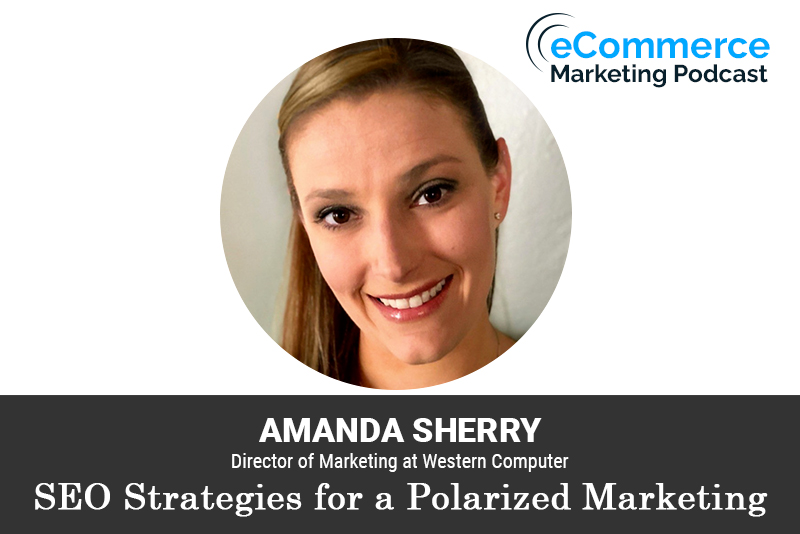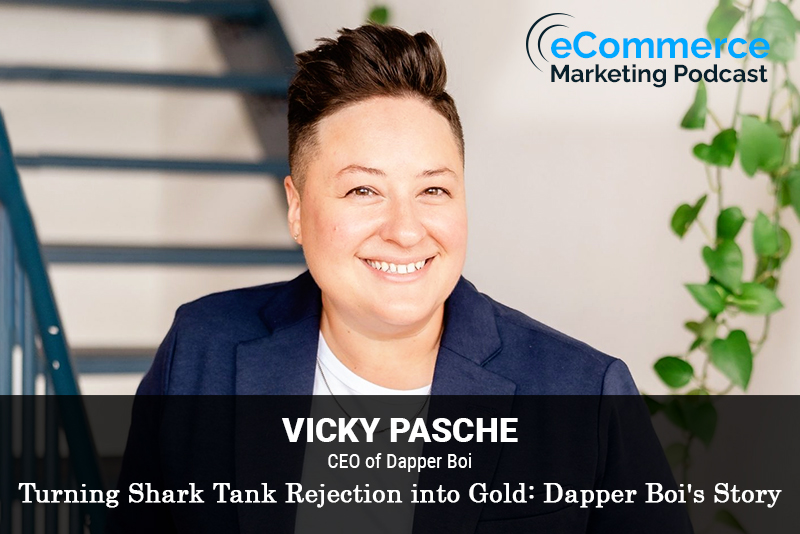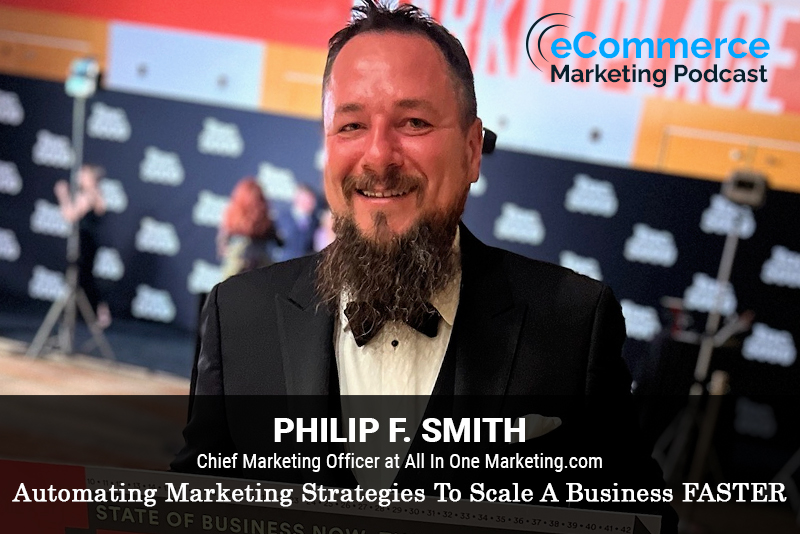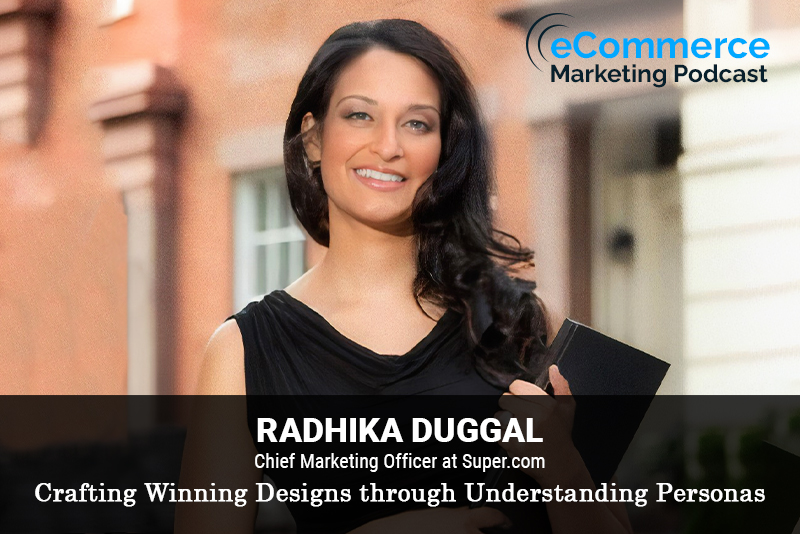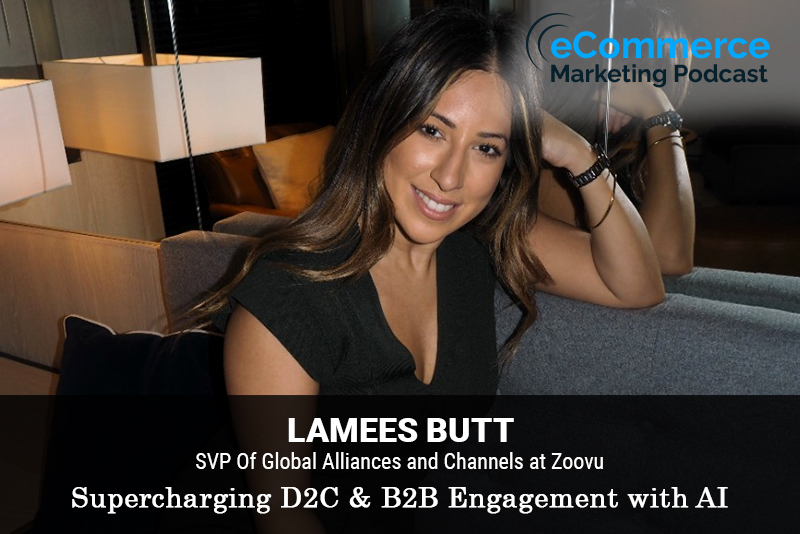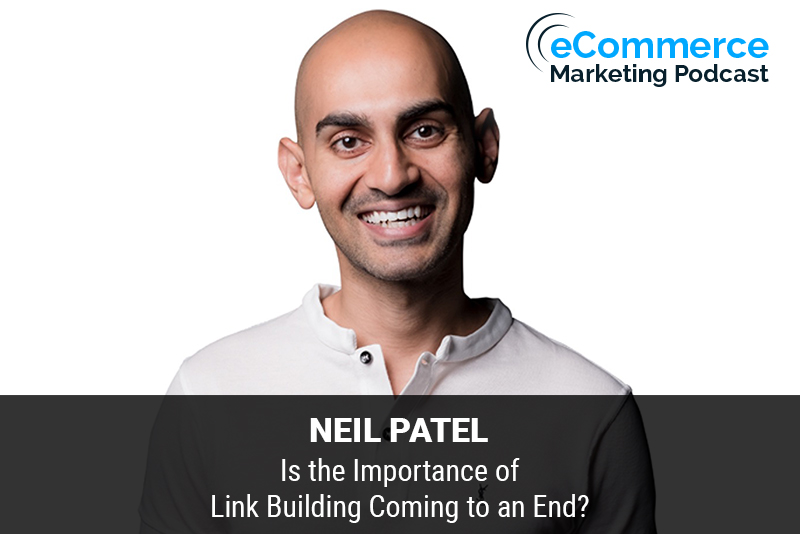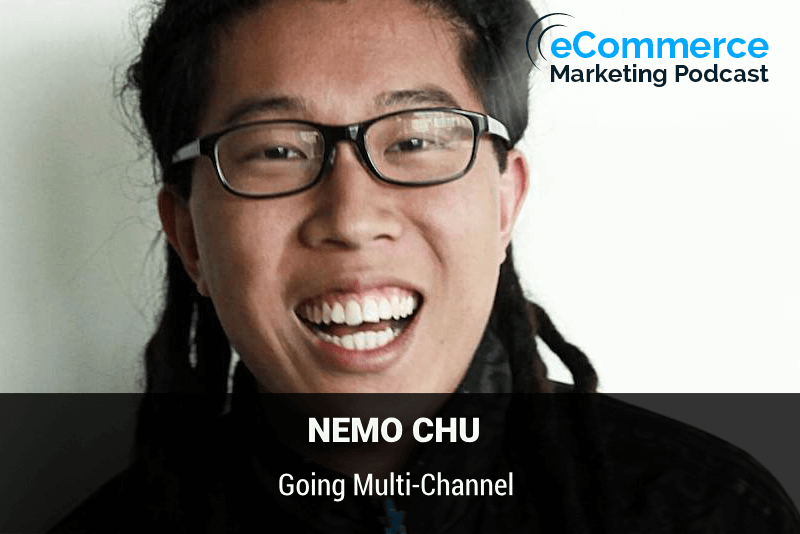
The eCommerce Marketing Podcast walks you through everything that goes into ecommerce marketing — from inbound marketing to paid advertising to conversions. Learn the strategies top marketing experts use to grow their businesses.
Head over to Leadfeeder.com and sign up for a 14-day (no strings attached) free trial!
Amanda Sherry is the Director of Marketing at a Microsoft Gold partner, Western Computer, with a passion for showcasing the transformative power of data in the dynamic world of Microsoft solutions and marketing. With over 15 years of marketing experience and a Master’s of Science in Public Communications, Amanda brings a unique blend of creativity and analytical prowess to the table.
In this episode, you will learn
- The most polarizing beliefs in marketing today, and how do they impact brand strategy and customer engagement
- Finding the right balance between being bold and polarizing, without alienating a significant portion of your target audience
- Misconceptions about SEO in the marketing world and the reality behind effective SEO strategies
- How can SEO be effectively integrated into marketing strategies that may be considered polarizing
- Emerging trends in SEO and digital marketing that will shape the future of how companies market their products and services, especially in contexts that may involve polarizing approaches
For show transcript and past guests, please visit https://www.ecommercemarketingpodcast.com
Or on YouTube at:
https://www.youtube.com/channel/UC3PgT0NOGzpdPGQtBK0XLIQ
Follow Arlen:
Twitter: https://twitter.com/askarlen
Facebook: https://www.facebook.com/arlen.robinson.7
Instagram: https://www.instagram.com/arlenyohance/
LinkedIn: https://www.linkedin.com/in/arlenrobinson/
Past guests on the ecommerce marketing podcast include Neil Patel, Nemo Chu, Luke Lintz, Luke Carthy, Amber Armstrong, Kris Ruby and many more.
Thanks for listening. Be sure to subscribe and leave a review.

In this episode of the E-Commerce Marketing Podcast, host Arlen Robinson interviews Amanda Sherry, the Director of Marketing at Western Computer, a Microsoft Gold partner. Amanda shares her extensive experience in B2B marketing, focusing on the dynamic world of Microsoft solutions. The discussion covers polarizing beliefs in marketing, the power of SEO, and the future of digital marketing. Amanda provides valuable insights into how brands can navigate these areas to enhance customer engagement and achieve their business goals.
Key Takeaways
- Introduction and Background ([00:01] – [02:48])
- Amanda Sherry’s journey from studying psychology to a career in marketing.
- Her role at Western Computer and her passion for blending creativity with data analysis.
- Polarizing Beliefs in Marketing ([02:48] – [07:04])
- The debate over whether email marketing is dead and the benefits of data compliance in email marketing.
- The balance between professional, polished content and personable, relatable messaging in B2B marketing.
- The importance of integrating SEO (Search Engine Optimization) and SEM (Search Engine Marketing) rather than siloing them.
- Content Creation and SEO ([07:04] – [11:37])
- The shift from keyword-stuffed content to intent-based, human-readable content.
- The significance of video marketing and on-demand webinars in SEO strategy.
- Google’s addition of “experience” to its EAT (Expertise, Authoritativeness, Trustworthiness) framework and its implications.
- Changes in SEO Practices ([11:37] – [16:15])
- The move towards intent-based search results and writing for humans.
- The growing importance of video content and the impact of Google’s EAT framework on search rankings.
- Misconceptions about SEO ([16:15] – [21:28])
- The myth that organic searches do not convert or are not qualified conversions.
- The misconception that SEO is a set-and-forget strategy, highlighting the need for continuous updates and technical audits.
- Emerging Trends in SEO and Digital Marketing ([21:28] – [27:03])
- The impact of AI-driven SERPs and the increasing role of AI in search results.
- The importance of expanding touchpoints beyond just website SEO, including social media and other platforms.
- Future of SEO and Google ([27:03] – [29:53])
- Speculation on the future of Google and the integration of AI into search results.
- The potential shift towards chat-based interactions and how Google might adapt its ad model to this format.
- Closing Fun Fact and Contact Info ([29:53] – [34:33])
- Amanda shares her ambidextrous abilities and how they have benefited her career.
- Encourages listeners to connect with her on LinkedIn for further discussions on marketing and SEO.
Guest Info
Amanda Sherry
Director of Marketing at Western Computer
LinkedIn: Amanda Sherry
Company Website: Western Computer

